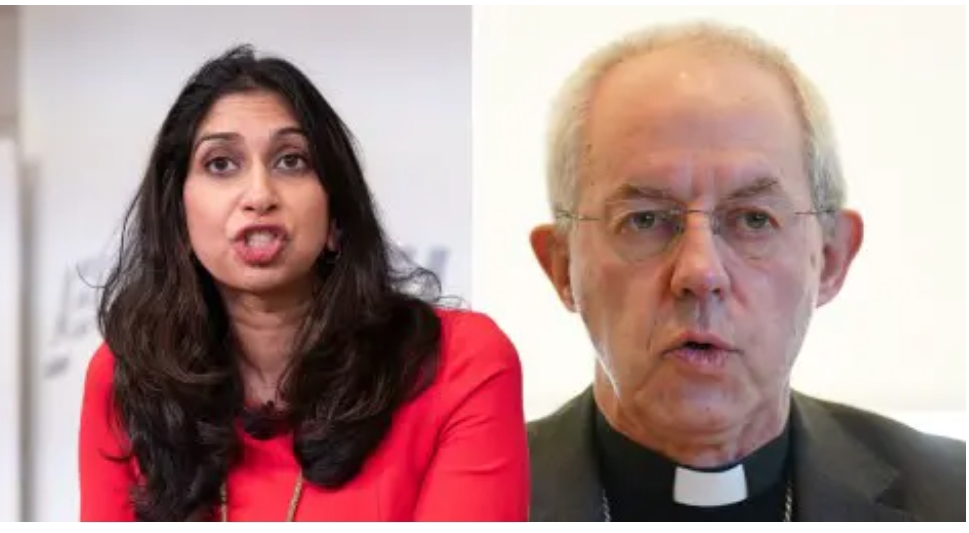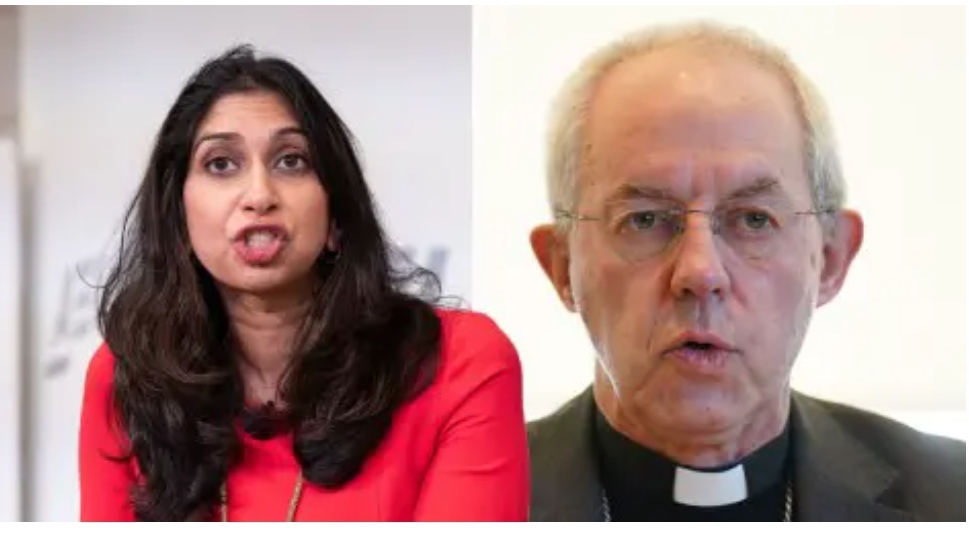Controversy Erupts as Suella Braverman Declines Meeting with Archbishop of Canterbury on Immigration

In a move that has raised eyebrows and sparked controversy, Suella Braverman, the UK’s Secretary of State for the Home Department, has declined an invitation to meet with the Archbishop of Canterbury, Justin Welby, to discuss immigration policies. The refusal to engage in dialogue with one of the country’s most prominent religious figures on a pressing issue has reignited debates about the government’s stance on immigration and the role of faith leaders in shaping public policy.

The invitation extended to Suella Braverman came as part of Archbishop Welby’s ongoing efforts to address the complex issue of immigration in the United Kingdom. His role as the leader of the Anglican Church and his extensive humanitarian work have positioned him as a prominent voice on social justice and refugee-related matters.
According to reports by BBC Saturday, September 30, 2023 It is no secret that immigration remains a deeply polarizing issue in the UK, with divergent opinions across the political spectrum. Braverman, a member of the Conservative Party, has been a vocal proponent of tighter immigration controls and has emphasized the need to secure the country’s borders.
The Archbishop, on the other hand, has been an advocate for a more compassionate approach to immigration, emphasizing the moral duty to protect vulnerable individuals and refugees. His efforts have included supporting community organizations that provide assistance to refugees and calling for a more humane asylum system.
Braverman’s refusal to meet with Archbishop Welby has been met with criticism from various quarters, including members of the opposition and religious leaders. Labour Party spokesperson Sarah Johnson stated, “It is disappointing that the Secretary of State is unwilling to engage in constructive dialogue with the Archbishop on this critical issue. The government’s immigration policies affect the lives of countless individuals, and it is essential to consider all perspectives.”
The Archbishop’s office expressed disappointment at the refusal but emphasized their commitment to continuing discussions on immigration and social justice. In a statement, they said, “We believe that open and respectful dialogue is essential in addressing complex issues like immigration. While the Secretary of State has declined the invitation, we remain committed to engaging with all stakeholders to find solutions that reflect our shared values.”
The decision to decline the meeting has also raised broader questions about the role of faith leaders in shaping public policy. In a democratic society, religious leaders often use their moral authority to advocate for change on issues such as poverty, climate change, and immigration. Archbishop Welby’s engagement on these matters reflects a broader trend of religious leaders taking an active role in public discourse.
While some argue that faith leaders should play a role in shaping policy discussions, others believe that the separation of church and state should be maintained, and that policymaking should be left to elected officials. The debate over the appropriate influence of religious leaders on government decisions is a longstanding and complex one.
As the UK grapples with the challenges of immigration and social justice, the refusal to meet between Suella Braverman and Archbishop Justin Welby underscores the deep divisions and differing approaches within the country. It also serves as a reminder of the importance of open dialogue and engagement with diverse perspectives when addressing complex societal issues.




